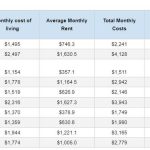What day of the week is it? What is the password of your bank account? If you are often forgetful, and your memory is getting worse, beware of dementia. However, research has proven that the right approach can improve dementia and make the mind work better.
The Most Commonly Recognized Early Sign of Dementia
An early symptom of dementia is forgetfulness. People in the early stages of dementia may often experience the following situations:
- Often unable to find their keys or glasses.
- Suddenly can’t remember what they are doing.
- Can’t remember what year it is, what day of the week it is, or the passwords to their bank accounts
- Slowly becoming unable to call people by their names.
- Forgetting whether they have just taken their medication or what they ate at their last meal.
According to Dr. Chun-Hsu Chen, director of Dr Chen Natural Health Center (DCNHC), the incubation period of dementia is about 15 years. When dementia first starts, it is actually undetectable. However, patients gradually find their memory deteriorates, followed by others starting to notice a decline in their memory.
It is easy to confuse dementia with amnesia, but while amnesia does not get worse, dementia is a continuous deterioration.
Insulin Resistance May Be the 1st Sign
The most common type of dementia is Alzheimer’s disease, which is a devastating neurodegenerative disease. The cause of dementia is associated with the accumulation of beta-amyloid plaques in the brain and the formation of neurofibrillary tangles in neurons by the microtubule-associated protein tau.
However, a review in the International Journal of Molecular Sciences suggests that before the appearance of these proteins, neuronal cells in the brain had already become hypometabolic and lost the ability to absorb and metabolize glucose.
This is a phenomenon of insulin resistance that prevents blood glucose from entering brain nerve cells, according to Dr. Chen. Without energy, these cells begin to atrophy and produce amyloid plaques. This will cause more and more brain nerve cells to atrophy and undergo apoptosis, making the brain’s operation become increasingly worse. For this reason, Alzheimer’s disease is also known as “type 3 diabetes.”
The brain has insulin receptors, and some of the nervous system functions are regulated by insulin. Suzanne de la Monte, a neuropathologist at Brown University, wrote in her study that insulin resistance and insulin deficiency are key to cognitive impairment and neurodegenerative diseases, especially Alzheimer’s disease.
In the early stages of Alzheimer’s disease, the brain’s use of glucose has already reduced by 45 percent.
Reversing Dementia Can Be Achieved by the Ketogenic Diet
Can dementia be reversed? Before we dive into this topic, let’s first talk about diabetes.
Dr. Chen runs his own camp and teaches a group of diabetics to learn how to properly implement a ketogenic diet.
“After three to four days, their blood sugar levels have gone back to normal,” said Dr. Chen. The patients’ previous abnormal sleep patterns of wanting to sleep in the afternoon while having insomnia at night also improve.
Dr. Chen further pointed out that the ketogenic diet can reverse diabetes, as well as dementia. After adopting the ketogenic diet, some dementia patients began to be able to call their family members by name, not get lost, and become better mentally.
Although heavy metals, environmental pollution, stress, and other factors can cause the atrophy of brain nerve cells, blood sugar is an immediate and direct cause. Therefore, to address the problem of insulin resistance, the body’s energy source should be changed from glucose to ketone bodies.
Generally, carbohydrates are broken down into glucose, which is the body’s energy source.
When there’s not sufficient glucose in the body, the body will break down fat and produce ketone bodies for its use.
A ketogenic diet means eating only a small amount of carbohydrates and consuming a large amount of fat, so instead of burning glucose, the body now burns fat to turn it into ketone bodies. And the ketone bodies become the body’s main source of energy.
“When the brain’s energy source changes from glucose to ketone bodies, the person will wake up,” Dr. Chen said, “People often believe that brain cells need glucose, but in fact the brain loves ketone bodies the most, and glucose comes second.”
He explained that in terms of energy used by the brain, glucose is preferred over ketone bodies. However, when glucose is being burned, free radicals are produced. And when glucose enters the brain cells, it needs the help of insulin and cannot enter and exit freely.
In contrast, ketone bodies can enter and exit the brain cells freely by diffusion, so it is more efficient for the body to use. Moreover, ketone bodies do not produce free radicals after being burned, only water and carbon dioxide.
There have been many studies on the effects of the ketogenic diet on dementia. A small-scale study conducted in New Zealand in 2021 found that people with dementia, who were on a ketogenic diet for 12 weeks, had improved daily functioning and quality of life, compared to the ones on a low-fat, regular diet.
Also in 2021, a review in the Journal of Geriatric Psychiatry and Neurology showed that adopting a ketogenic diet to intervene in dementia is beneficial and may delay its progression.
A review in the International Journal of Molecular Science further suggests that a ketogenic diet may improve cognitive performance in elderly patients with dementia, and that the best outcomes are obtained when the ketogenic diet is used in the early stages of dementia.
The Correct Ketogenic Diet Can Increase the Blood Ketones to a Certain Level
The ketogenic diet is composed of a large amount of fat (80 percent to 90 percent), some proteins (15 percent), and a very small amount of carbohydrates (2 percent to 5 percent). The intake of carbohydrates is greatly reduced. Carbohydrates include starchy rice, pasta, fruits containing fructose and/or sucrose, and milk with lactose.
Dr. Chen pointed out that the daily intake of net carbohydrates should be limited to 20 to 30 grams. In his camp, participants were put on a strict ketogenic diet, with net carbohydrates controlled to within 20 grams.
Therefore, when people implement the ketogenic diet themselves, everything they eat must be weighed and converted to basic nutrients, to count the amount of net carbohydrates, proteins, and fats these foods contain. It is difficult for people to convert food into nutrients at first, but there are conversion software and apps available. Usually it takes two weeks of serious execution for someone to become proficient.
If you can thoroughly implement a ketogenic diet, you can see the results in about a week. However, for patients with severe dementia, it will take a period of time for them to slowly get better; and whether or not they can return to normal will depend on the condition of their brain atrophy.
“Many people end up with poor or no results, because they don’t know how to count what they’re eating and so while thinking that they are on a ketogenic diet, they are actually not,” Dr. Chen said.
How to know if you are correctly implementing the ketogenic diet? You can use a blood ketone meter to monitor your ketone levels.
- Blood ketone level below 0.5 mmol/L: Ketogenic diet is not properly implemented.
- Blood ketone level between 0.5 and 3.0 mmol/L: The correct method is used, and a successful implementation should achieve a blood ketone level of at least 0.5 mmol/L.
- Generally speaking, people who are not on a ketogenic diet will have a blood ketone level between 0 and 0.1 mmol/L, at most 0.2 mmol/L.
Can Coconut Oil and Fasting Replace the Ketogenic Diet?
In addition to the ketogenic diet, a relatively easy way is to replace the fats and oils used on a daily basis with coconut oil, about 30 to 40 grams a day.
Dr. Chen explained that coconut oil contains a lot of medium-chain fatty acids, which can be quickly “cut open” and turned into short-chain fatty acids and then ketone bodies.
In a 2019 study on ketones and dementia, subjects were given a direct supplement of medium-chain fatty acids. Six months later, the subjects showed improvements in memory, linguistic skills, and executive capacity.
The benefit of using coconut oil is that you can maintain a regular diet without the strict carbohydrate restriction of a ketogenic diet, while getting a little bit of the benefits of a ketogenic diet to help your brain function.
In addition, intermittent fasting can be used. As long as the body is in a state of hunger during certain periods, it will also consume body fat and produce ketone bodies.
However, people cannot fast for a long time, so the effect will also be limited, just as the use of coconut oil will have a limited effect.
What Should We Be Aware of When Implementing a Ketogenic Diet?
Many people adopt a ketogenic diet primarily for weight loss, but they use the wrong approach, which causes many problems such as muscle loss and decreased metabolic rate.
In fact, the ketogenic diet was first developed for the treatment of childhood epilepsy, where ketone bodies can suppress abnormal brain discharges to achieve the goal of treating epilepsy. In recent years, more and more research has found that the ketogenic diet may have a neuroprotective effect and can be used to treat dementia.
However, the ketogenic diet is a low-carbohydrate and fat-rich diet, and some people with dementia are at risk for agitation, slightly increased cholesterol, gastrointestinal discomfort, and malnutrition after adopting the ketogenic diet.
Dr. Chen pointed out that when patients use the ketogenic diet, they may experience side effects such as mineral loss and cramps.
However, there is no significant risk overall.
It is important to note that the general public may not be able to do the ketogenic diet correctly, and people with dementia may not be able to fully cooperate with the dietary regime, so it can be a bit challenging to adopt this diet at home.
In addition, type 1 diabetics and people with end-stage type 2 diabetes cannot use the ketogenic diet, because otherwise they will be prone to ketoacidosis.
Nevertheless, patients in the early and middle stages of diabetes are very suitable for the ketogenic diet, and they only have to pay attention to the dosage of their hypoglycemic drugs to avoid hypoglycemia.












